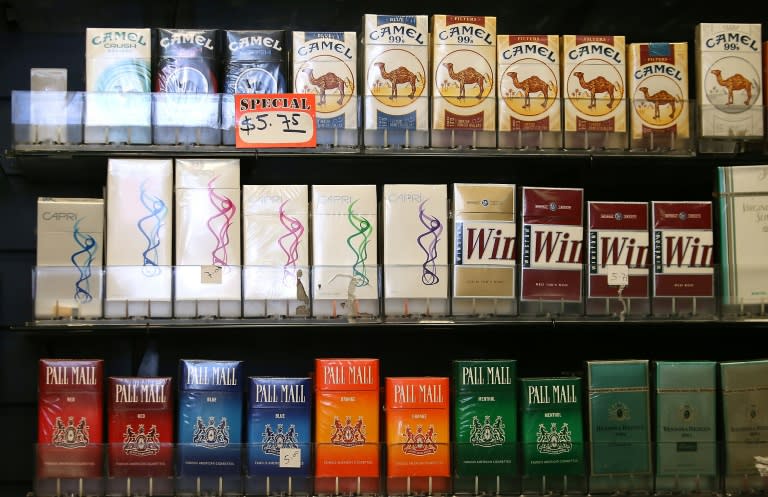Tobacco giant BAT targets US with $47 bn Reynolds bid
British American Tobacco launched Friday a $47-billion bid for control of Reynolds American, as it seeks expansion into the United States -- the second largest market after China. The deal, worth the equivalent of 43 billion euros, would create the world's largest listed tobacco company by net turnover and operating profit, BAT said in a statement. The news sent BAT's share price more than three percent higher in morning deals on the London stock market. BAT said the move would give it "a leading position in the US tobacco market" and "a significant presence in high growth emerging markets across South America, Africa, the Middle East and Asia, together with the most attractive developed markets". "The main reason for the deal is for BAT to be in the United States," a company spokeswoman told AFP, noting that BAT did not yet have a direct presence. She added that e-cigarettes were also a "motivation" behind the deal, but were not the main driver. The blockbuster proposal would bring together BAT brands Dunhill, Kent and Lucky Strike cigarettes with Reynolds American's Camel and Newport. The combined group would have a "world class pipeline" of so-called next generation products, like e-cigarettes, in a fast-growing part of the market. Most global tobacco firms are looking to emerging markets to offset sliding demand in Western Europe, where high taxes, public smoking bans and health concerns have persuaded many people to give up. At the same time, in recent years there has been rapid growth in e-cigarettes, which are battery powered devices that heat a nicotine liquid. - 'Global consumption rising' - "We are not concerned by the decrease in tobacco consumption in developed countries as the consumption is rising on a global scale," the spokeswoman added. The cash-and-shares offer would see BAT purchase the 57.8-percent of Reynolds American that it does not already own. The bid, pitched at $56.50 per Reynolds share, was a 20-percent premium on Thursday's close and comprises $20 billion in cash and $27 billion in BAT shares. The deal values the entire group, which is based in Winston-Salem in North Carolina, at around $93 billion. London-listed BAT noted that Reynolds' 2015 purchase of US tobacco behemoth Lorillard, the manufacturer of the Blu e-cigarette, had "strengthened" the US group. "The proposed merger of our two great companies is the logical progression in our relationship and offers all shareholders a stake in a stronger, truly global tobacco and Next Generation Products company," said BAT chief executive Nicandro Durante. "BAT is proud of its track record of consistent delivery for shareholders and this transaction would further strengthen that delivery in the future." The British firm, which already holds a 42.2-percent stake in Reynolds American, added that it had not yet held formal talks. Due to US securities laws, BAT was required to announce its proposal promptly after it was made to Reynolds management, and had therefore been unable to have prior negotiations regarding the deal. About one in five adults in Britain smoke, according to the most recent official British data for 2014. Tobacco -- which kills 100,000 people there each year -- is the top preventable cause of cancer. Worldwide, smoking claims around six million lives annually, mostly in low-income countries, the World Health Organization says.

 Yahoo Finance
Yahoo Finance 


